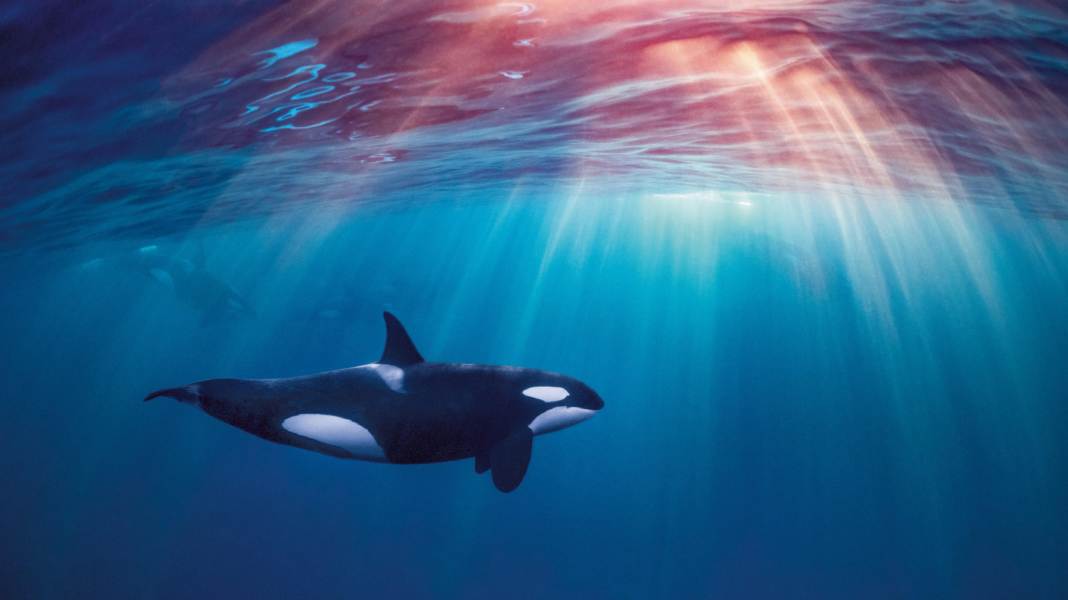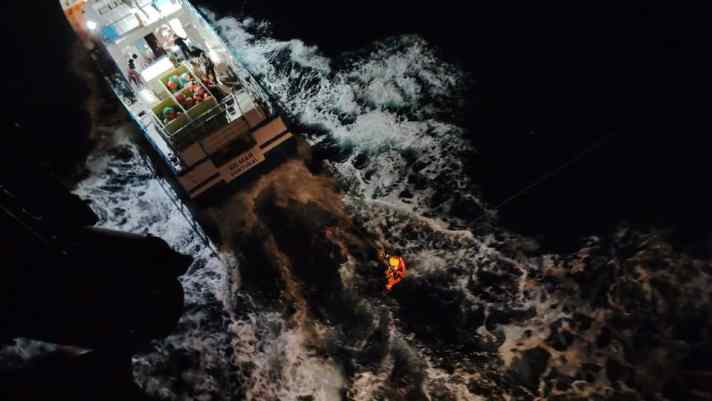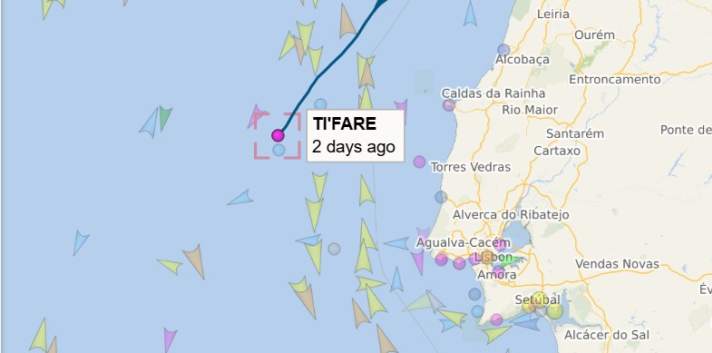
The occupants - a French-Portuguese couple and their three daughters aged eight, ten and twelve - were unharmed. The family had started their journey on 29 September in the French town of Lorient. After the attack, they were able to send a distress call by radio to the sea rescue centre in Lisbon before making their way to the life raft.

Large-scale search operation
The Portuguese navy coordinated an extensive rescue operation in which various units were deployed. "Several maritime search and rescue assets were immediately mobilised to the scene in order to act quickly and effectively," the authorities' report states. A Portuguese Navy frigate, a fishing boat and a rescue boat from Peniche as well as a Portuguese Air Force helicopter were involved in the rescue. The fishing boat reached the casualties first and rescued the five shipwrecked people from the life raft. They were then taken by helicopter to the Montijo military base and later transferred to a hospital.

More and more assaults?
The incident, which occurred on Friday evening but only became known at the weekend, is not an isolated case. Since 2020, sailing yachts have been repeatedly damaged by orcas, sometimes severely. According to the Portuguese Maritime Safety Authority, 61 reports of orca encounters have already been registered off the country's coasts this year. However, there are no real statistics. Sailors help themselves by using platforms such as orcas.pt or the British Cruising Association report sightings of or interactions with the killer whales, which are then recorded in databases and apps and made available to water sports enthusiasts. This year, orcas.pt has already recorded 109 attacks on sailing boats along the entire Iberian Peninsula, ten more than in the same period last year.
Just one month earlier, on 13 September, orcas off the Caparica coast not far from Lisbon a sailing yacht sank within a very short time.t by damaging the rudder of the sailing boat. The boat took on water and could not be rescued despite salvage attempts. The crew were rescued by nearby boats. New orca attacks are currently being reported almost daily in the forums.
Orcas now also attack in shallow water
It is not only the increasing number of attacks that is worrying, but also the change in behaviour. While shallow waters with a depth of less than twenty metres were previously considered relatively safe, orca interactions are now also taking place in shallow coastal waters. On the same day that the sailing boat sank off the Costa da Caparica, two other boats were attacked by orcas off Cascais and Fonte da Telha beach - in an area with a water depth of less than 20 metres. A total of nine people had to be rescued in these incidents.
"They just want to play"
Scientists assume that the incidents are a result of playful social behaviour on the part of the animals. The marine mammals no longer have to spend as much time foraging as they used to, as stocks of bluefin tuna - their main food - are recovering well thanks to strict conservation measures. "They have more 'free time', which they can use for social interactions such as playing together or expressing their curiosity. All of this means that they can explore themselves and their environment more intensively. And at sea, smaller boats are immediately available as welcome play objects," surmises biologist Ulrich Karlowski from the German Foundation for Marine Conservation.
Like him, most experts do not believe that these highly intelligent animals from the dolphin family are engaged in targeted aggression. They therefore reject the term "attacks" and speak of "interactions" or encounters. However, the causes of the conspicuous behaviour, which has only been increasingly recorded since 2020, are still being investigated. Nevertheless, headlines such as "All-clear: the orcas just want to play" have recently been doing the rounds. For sailors, this is an unhelpful realisation given the sometimes dramatic consequences of the "play instinct".
Are sailors allowed to defend themselves?
Knowing the cause of the animals' behaviour could also lead to the development of specific behavioural cues on a scientific basis in time. However, no scientific research has yet been conducted to determine the effectiveness of defence measures and their impact on the endangered "Orca Iberica".
The level of uncertainty is reflected in the lively discussions in sailing forums on social media. From the use of whale pingers, sand, electric shocks and noise to firearms, there is speculation about the choice of weapons. Many The Cruising Association has published experience reports on defence attempts on its website. However, it is not possible to draw any clear conclusions about the effectiveness of certain measures. Sailors can only stick to the behavioural patterns regularly developed and adapted from the experiences of other sailors or develop their own strategies.
The endangered animals are strictly protected by international conventions and national legislation. Recently, however, a highly professional-looking legal interpretation has been circulating in English and Portuguese, according to which the Use of underwater fireworks ("fire crackers") against the killer whales appears to be legitimate. The analysis is said to have been prepared "by a Portuguese lawyer". However, even after lengthy research, it is not possible to determine which lawyer the author is. There are justified doubts about the authenticity and therefore also the reliability of this interpretation of the law. Anyone defending themselves against an orca attack is treading on thin legal ice.

